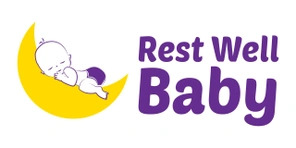Blog

What Are The Benefits Of Sleep Training?
Teaching Your Little One to Sleep: A Skill Worth Learning
As parents, we often ask ourselves: “Why do I need to teach my child to fall asleep?” At first, it may feel counterintuitive—after all, sleep is natural. But the truth is that falling asleep independently is a skill, much like walking or talking. Some babies master it easily, while others need gentle guidance to develop healthy sleep habits.
Why Do Babies Benefit from Sleep Training?
In those first months, it’s normal (and wonderful!) to rock, cuddle, or nurse your baby to sleep. These moments are deeply comforting. But as your child grows, relying on these methods can actually make sleep more difficult—for both baby and parents.
Here’s why teaching independent sleep matters:
Better Sleep Quality – Babies who self-soothe are more likely to sleep deeply and wake refreshed.
Fewer Night Wakings – Independent sleepers tend to wake less often, giving the whole family more rest.
Less Dependence on Sleep Props – Learning to fall asleep without a bottle, pacifier, or rocking makes transitions smoother.
Stronger Emotional Regulation – Sleep skills help children manage discomfort and return to sleep on their own.
Happier Parents – Well-rested parents have more energy, patience, and joy to share with their families.
How to Begin Sleep Training
If you’re ready to start your sleep journey, here are some gentle steps to guide you:
Check with Your Pediatrician – Make sure your child is developmentally ready for sleep training.
Establish a Consistent Bedtime Routine – A warm bath, a story, and quiet time signal to your child that bedtime is near.
Create a Sleep-Friendly Space – Keep the room dark, cool, and quiet. White noise can help minimize disruptions.
Seek Expert Support – Partner with a Certified Pediatric Sleep Coach for a personalized, gentle approach tailored to your family.
Remember
Sleep training is a journey, not a quick fix. Patience, consistency, and compassion are key—for both you and your child. By teaching your little one to fall asleep independently, you’re giving them a lifelong gift: the foundation for healthy, restorative sleep.
Want to learn more? Book your 30-minute Sweet Dreams Starter Call today and discover how I can help your family enjoy the gift of sleep.
Yours in sleep,
Tracie / Rest Well Baby
www.restwellbaby.com
Tracie Kesatie is a Certified Gentle Sleep Coach dedicated to helping families with little ones 0-10 years of age achieve a restful night's sleep.
Disclaimer: This article provides general information and is not intended as medical advice. Always consult with your pediatrician for any concerns about your child's health.
Blog





